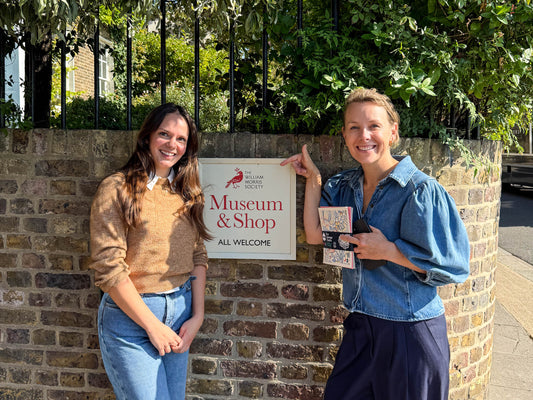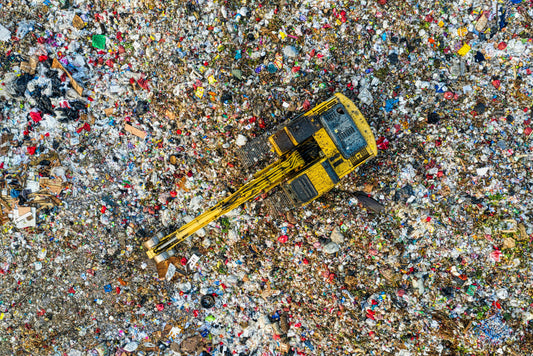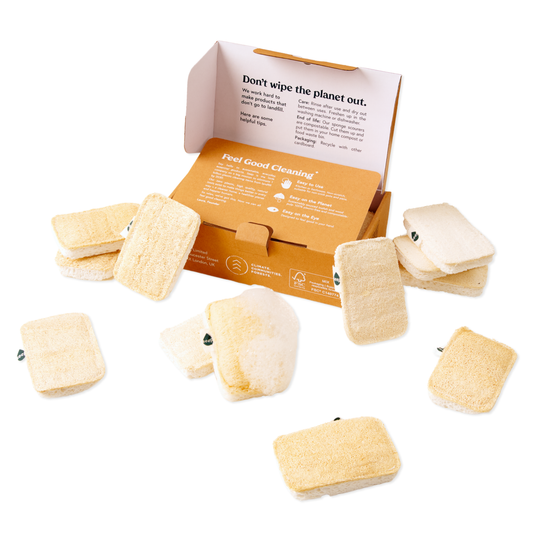
A question we get asked a lot is 'why are eco friendly products more expensive?' or 'why would I buy from Seep when we can get the same for half the price elsewhere?'. These questions are very valid, as we totally understand it can seem costly to make these more eco-friendly swaps and almost seem unachievable to live a more sustainable lifestyle. Plastic will always be the cheapest option, but the environmental cost is much, much greater.
1. Quality Materials
What makes Seep different from traditional household brands is how we think about circularity when developing new products. Typically, a product life cycle is defined as “cradle to grave”: items are used, then disposed of. But at Seep we know there is no such thing as cradle to grave, because every single plastic sponge and cloth lives on and continues to pollute the planet, even after it is thrown away. Instead, we create products with “cradle to cradle” in mind. Quite literally, our products 'seep' back into the earth and leave no harm. So, when sourcing materials, we work backwards. We prioritise renewable sources, materials that are compostable, long-lasting and think about “how will customers dispose of this product at the end of its life”. This means sourcing higher quality materials that are certified, such as:- FSC/PEFC-certified wood pulp
- TUV Compost Home
- GOTS-certified organic cotton
- FSC-certified bamboo
- Fair Trade rubber
2. Product Innovation
Our customers are integral to our mission of putting people at the heart of our business and building Seep to be the type of brand we want to buy from. We regularly enlist the help of our community and send out surveys to gather customer feedback - please, look out for the next one, tell us what you want us to launch next and help to contribute to the future shape of the range! Our aim is to revolutionise the household essentials category for the good of people and planet. We are committed to providing customers with plastic-free sustainable swaps at home. I want to replace every single plastic cleaning tool in your house with a sustainable alternative! I also want to make more eco friendly products accessible, where in the past they have been considered a privilege. If there is a product at home I use a lot, I think how can I make this plastic-free, compostable, accessible and Seep-ified.
A big part of my job role is keeping on top of emerging market trends and researching material innovations, which then feeds into product development. For example, a huge amount of investment and research into bioplastics is currently being undertaken, contributing to the emergence of compostable plastics, which seeks to reduce our reliance on fossil-based plastics. This shows the direction of travel, in light of COP26 and the climate emergency, particularly for plastic packaging. We also work with a sustainability and materials expert, Brooke Roberts-Islam, to guide us on future product development. Brooke has been hugely involved in the development of our new cloth, with which we won a grant from the Mayor of London as part of his Green New Deal. Her guidance means that our cloth will be innovative and sustainable, capturing the science behind the material.






